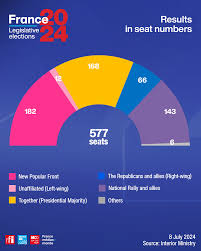
The main story is the RN’s advance, not an NFP victory.

The Libertarian Party has become just another flavor of the same reaction that propelled Trump to office in the first place.
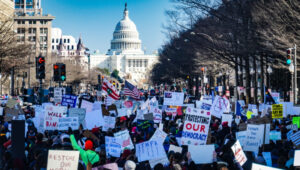
American politics are in turmoil, all of politics in the broadest sense.
In the White House, in the Congress, in the courts, in state governments, in communities urban, suburban, and rural, in labor and social movements, and in the streets. . . .
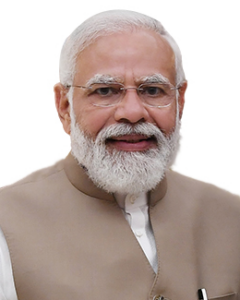
Aparna Sundar analyzes the basis of Modi’s authoritarian rule in India, including Hindutva, predatory capitalism, populist performance, and repression.

Shane Burley interviews militants from the antifascist network Anti-Racist Action, active in North America between the 1980s and early 2000s.

Frances Fox Piven reviews and praises Stephen Steinberg’s book Counterrevolution, on the rise of the racist right in the US, attacking the gains made by the Civil Rights Movement.
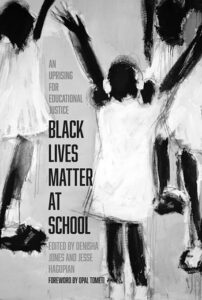
Phil Gasper interviews radical educator Jesse Hagopian about attacks on anti-racist education in the United States.

The consensus from the authors reviewed here is that the anti-fascist and anti-authoritarian causes requires profound socio-economic and political changes at all levels of global society.

Donald C. Wood assesses the failed record of economic policies pursued by Shinzo Abe, right-wing former Prime Minister of Japan.

The government of Pedro Castillo didn’t really change many of the policies that came before, we did not find measures that have endangered those at the top, nor have they benefited those below. In the statements of the simple men and women of the mobilized populations we find a constant: The elite did not let Castillo govern because he was one of them. And they are right.
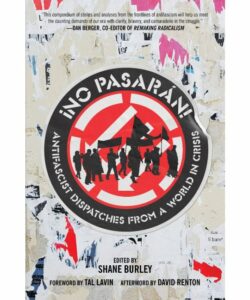
In this interview, Shane Burley, author of Fascism Today and Why We Fight, discusses their latest edited collection No Pasarán!: Antifascist Dispatches from a World in Crisis, an expansion and extension of antifascist organizing and ideas.

On September 25 Italy will hold elections following the resignation of Prime Minister Pario Draghi and the concern is palpable.

Modi’s India, Putin’s Russia, Bolsonaro’s Brazil, Orban’s Hungary, and soon Giorgia Meloni’s Italy and maybe Trump II’s United States, the picture is far from being exhaustive but it still gives an idea of the seriousness of the threat that now hangs over humanity.

Martin Oppenheimer discusses the corporatist character of historical fascism and the importance of a left alternative vision to counter fascist threats today.

Virtually the entirety of fascist, Nazi, white-supremacist and ultra-rightist forces everywhere in the world have been strongly aligned to the Putin regime.

The convoy represents a significant movement by the country’ growing far right, one that parallels and is influenced by right-wingers South of their border led by Donald Trump.